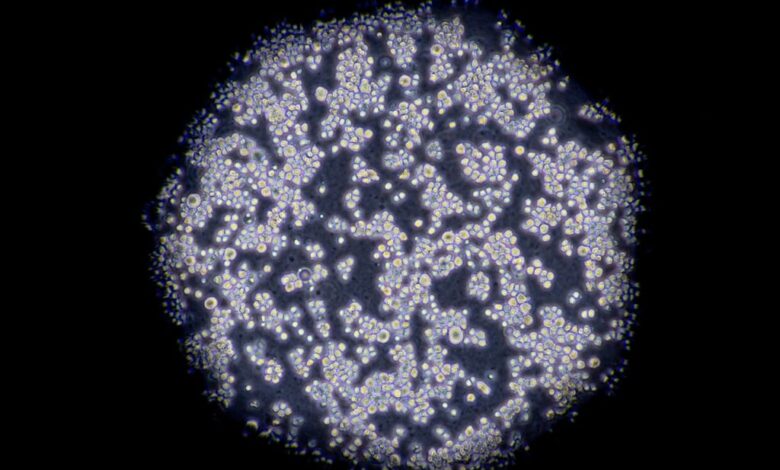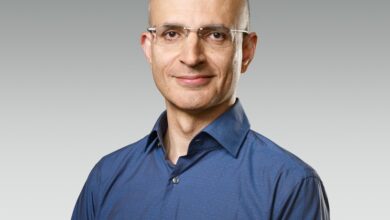Newly discovered ‘off switch’ triggers cancer cell death in possible breakthrough

Researchers say they have located an “off switch” that can trigger the death of cancer cells.
Scientists at the UC Davis Comprehensive Cancer Center in Sacramento, California, have identified a protein in the CD95 receptor that can “program” cancer cells to die, as detailed in a study published in the journal Cell Death & Differentiation on last month.
A receptor is a protein inside a cell that receives and transmits signals.
CD95 receptors, also known as Fas, have earned the nickname “death receptors” because they send a signal that causes cancer cells to “self-destruct,” according to a UC Davis news release.
“Previous efforts to target this receptor have been unsuccessful. But now that we have identified this (target) epitope, there could be a therapeutic avenue to attack Fas in tumors,” said Jogender Tushir-Singh, associate professor in the Department of Medical Microbiology and Immunology and senior author of the study. he said in the statement.
Experts are hopeful that future anti-cancer drugs can stimulate the activity of these CD95 receptors to create a new weapon against cancerous tumors, which have historically been treated with surgery, chemotherapy and radiation.
Immune-based therapies, such as CAR (chimeric antigen receptor) T-cell therapy, have shown promise for a subset of patients but have had limited effectiveness against many types of cancer.
“Despite having decent success in liquid tumors, such as leukemia-spectrum cancers, long-term remission remains the biggest challenge for CAR T-cell therapies,” Tushir-Singh told Fox News Digital in an email.

The biggest challenge with this therapy, which typically costs $500,000 or more, is that it has shown only “little success” in treating solid tumors, the researcher noted.
“Our study provides a comprehensive conclusion and a potential solution to transform the poor success of CAR-T therapies into potentially successful therapies. [therapies for] solid tumors.”
The newly discovered “kill switch” could kill tumor cells while helping make immunotherapies more effective — “a potential double whammy against tumors,” according to the statement.
So far, no drug that increases CD95 has reached clinical trials.
“Despite many advances in the cancer immunotherapeutic field, the targeting of Fas remains neglected, primarily due to fear of retaliation against T cells of the immune system,” Tushir-Singh told Fox News Digital.
The study had some limitations, namely, there is limited data from clinical trials, the researcher noted.
Tushir-Singh noted, however, that cancer researchers can now go back and collect human tumor samples from clinical trials and perform new analyzes in light of these findings.
“It is clear that the success of CAR-T therapy depends on off-target killing by Fas,” he told Fox News Digital.
“With current information, we, researchers and clinicians, should screen potential cancer patients, who would be receiving CAR-T therapy, for the comprehensive presence of Fas in their tumors,” he continued.
“If a patient lacks Fas expression in their tumors, we must find ways to safely manipulate these tumors and start producing Fas before administering expensive CAR therapies. The latter would likely make CARs more potent in terms of long-term efficacy.”
Looking ahead, Tushir-Singh said he is hopeful for the future of cancer treatments.
“Due to the advent of cancer immunotherapy and other targeted therapies, overall cancer rates in recent decades have decreased significantly,” he said.
“Every day I read the outstanding research being carried out in the United States to defeat cancer. “People should keep a positive attitude.”
Tushir-Singh added: “The next breakthrough is just one experiment away.”




